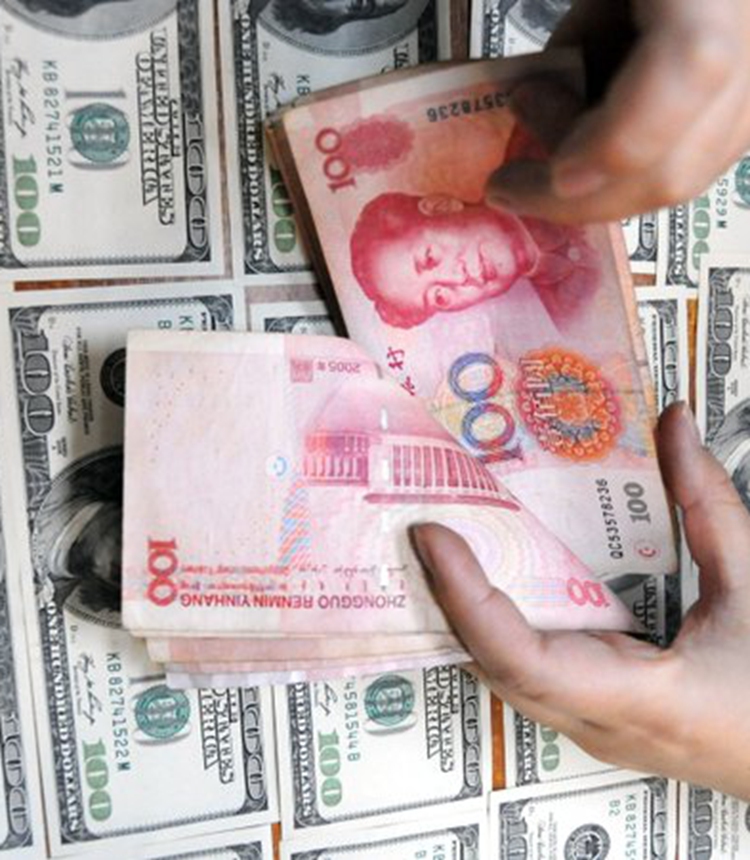
dollar yuan Photo:Xinhua
A flurry of optimism prevailed on global markets ahead of the US Federal Reserve's announcement of its interest rate hike decisions for November, with markets anticipating that the pace of the hikes will ease next year given dismal economic data in the US.
As US interest rate policies become more predictable, their impact on Chinese financial markets, particularly the yuan's exchange rate, will probably lessen, experts noted. They predicted that the yuan's central parity exchange rate is unlikely to sink beyond the bottom line of 7.3 per dollar this year.
US stock markets surged on Friday, with the Dow Jones Industrial Average rising more than 800 points to maintain its longest winning streak since November 2021. The S&P 500 also gained more than 90 points to finish at 3,901 points.
However, yields on the 10-year Treasury note fell to about 4.06 percent as of press time after hitting 4.291 percent on Monday.
This combined data fed market anticipation that the US Federal Reserve's radical interest rate hikes may be drawing to an end, as the negative impact of the hikes are accumulating in the form of weakening economic data, while risks of surging inflation should ease next year.
Data reported by the CME FedWatch Tool also fed into the market expectations. According to CME data, the probability that the Fed would raise interest rates by 75 basis points to 3.75-4 percent is as high as 83.7 percent in November, but the possibility of a same-range rate hike in December is only 46.6 percent.
Since March this year, the Fed has raised interest rates five times by a total of 300 points, including three separate 75-point hikes.
Xi Junyang, a professor at the Shanghai University of Finance and Economics, predicted that the US Federal Reserve would slow the pace of interest rate hikes around the first quarter of 2023, which may mean increasing rates by only 25 basis points, and there may even be rate cuts toward the end of next year.
"The negative impact of interest rate hikes on the US economy is already manifesting in economic data and should accumulate further, while inflation should become more moderate, returning to about 6 percent or lower next year, giving the Fed space to slow rate hikes," Xi told the Global Times.
Tian Yun, a veteran macroeconomic observer, said that the interest rate hikes are putting pressure on the US property market with mortgage rates surging toward 7-8 percent, which the US property market is incapable of absorbing.
According to the S&P CoreLogic Case-Shiller US National Home Price Index, US home prices rose 13 percent in August from the year before, compared with 15.6 percent growth in July. The drop between July and August was the largest deceleration in the history of the index going back to 1987, according to a CNN report.
In early October, the S&P Global Manufacturing PMI also sank to 49.9 from 52 in September, weaker than market expectations.
Market observers also believe that the impact of November's interest rate rise on China's financial markets won't be as drastic as previous rate hikes.
"The market has anticipated the Fed policy turn, and the short-term rate hike has also been considered," Xi said.
He predicted that the yuan would still undergo some level of depreciation after the November US rate hike, and the yuan's central parity rate might weaken to between 7.2 and 7.3 against the dollar after the Fed rate hike announcement, which is expected this week.
The yuan's central parity rate stood at 7.1768 against the greenback on Monday.
Tian noted that China's trade surplus is expected to rise above $800 billion this year, and this means that the conditions are not ripe for large-scale depreciation, unless the US interest rate hikes trigger an above-normal jump in other foreign currencies that the yuan is pegged against, such as the yen and the euro.




